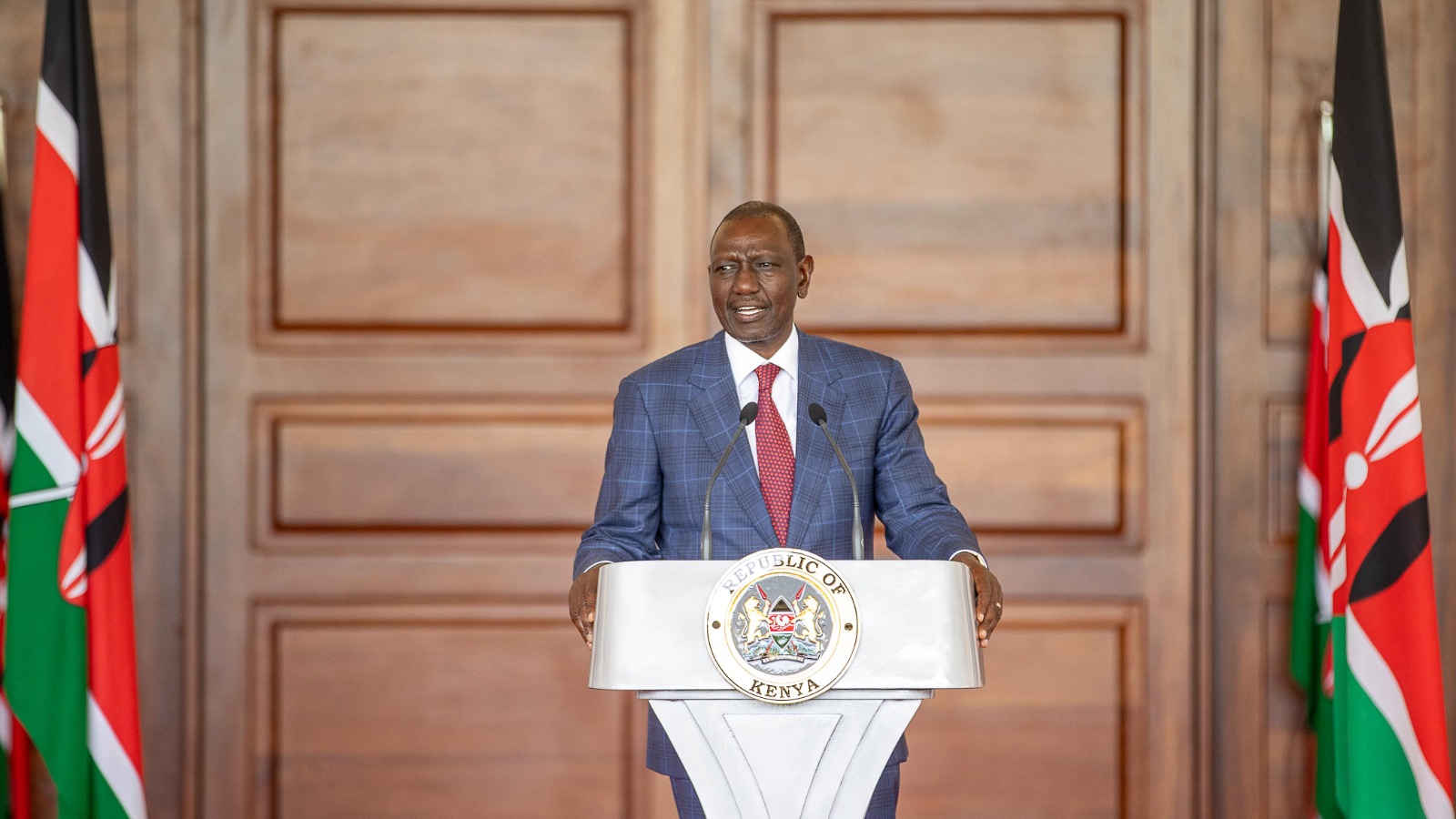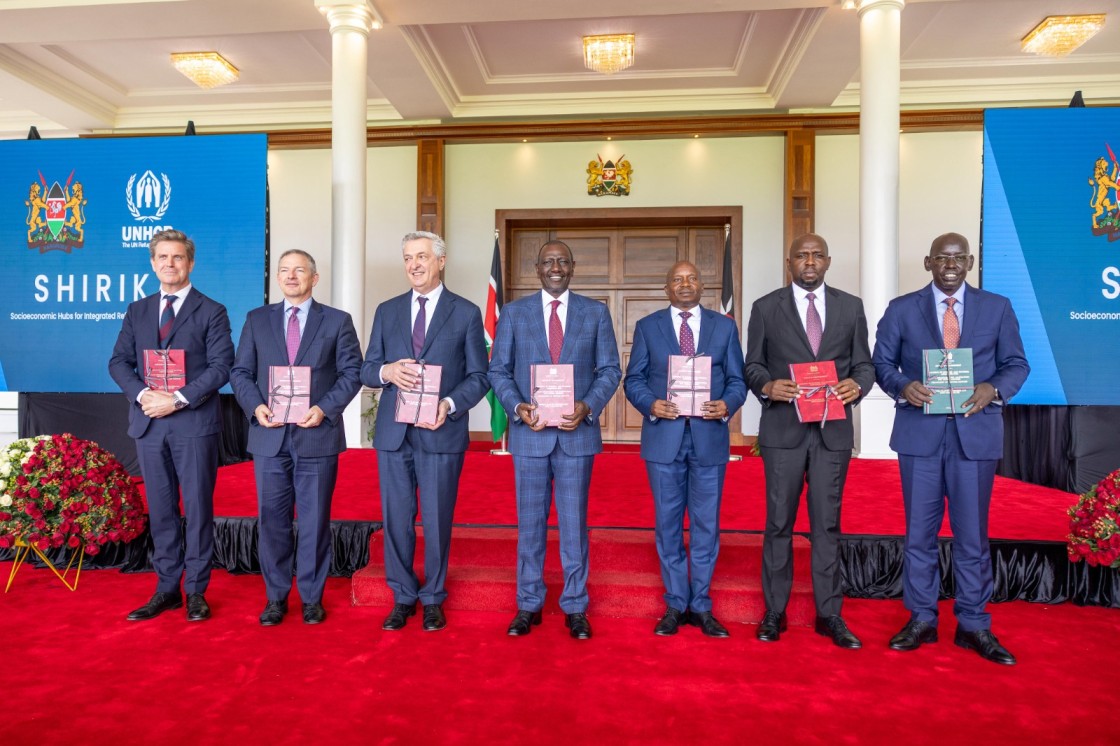Ruto calls for global support to implement Shirika Refugee Plan

President William Ruto has urged humanitarian organizations and international financial institutions to collaborate with the Kenyan government in implementing the Shirika Refugee Plan, a transformative initiative aimed at integrating refugees into local communities.
Speaking at State House, Nairobi, during the plan's launch on Friday, Ruto emphasized the need for stronger partnerships to achieve sustainable and inclusive solutions for both refugees and host communities.
“To guarantee the best chance of fully actualizing the promise of Shirika, I call on our partners in development and humanitarian response, international financial institutions, and other organizations to enhance their contribution to our partnership in order to renew the way we transform solidarity by investing in sustainable, scalable, and inclusive solutions,” he stated.
The Shirika Refugee Plan marks a shift in Kenya’s approach to refugee management, moving from traditional camp settings to integrated settlements that promote socio-economic inclusion.
The initiative aligns with the Refugees Act of 2021 and the Comprehensive Refugee Response Framework, seeking to uphold the dignity and rights of refugees while fostering development in host communities.
“Kenya is a generous and hospitable society. As a tradition, we warmly welcome all visitors, understanding that they arrive in our land by different routes for different reasons,” Ruto remarked, reaffirming the country’s commitment to providing refuge.
Kenya currently hosts over 800,000 forcibly displaced individuals, primarily from the East and Horn of Africa and the Great Lakes region.
Ruto noted that the growing complexity and duration of displacement crises, coupled with dwindling resources and limited resettlement opportunities, make it necessary to adopt a development-oriented model centered on sustainability, inclusion, and resilience.
 President William Ruto, his Deputy Kithure Kindiki, Interior CS Kipchumba Murkomen, and other leaders during the launch of the Shirika Refugee Plan at the State House on March 28, 2025. PHOTO/PCS
President William Ruto, his Deputy Kithure Kindiki, Interior CS Kipchumba Murkomen, and other leaders during the launch of the Shirika Refugee Plan at the State House on March 28, 2025. PHOTO/PCS
“This is why the Shirika Plan is so significant. It is a bold, homegrown solution to the challenges of forced displacement,” he asserted.
By transforming refugee camps into integrated settlements, the plan aims to improve the lives of refugees while also creating economic opportunities for host communities.
The Shirika Refugee Plan also sets the stage for policy and regulatory reforms that will benefit both refugees and local populations.
The approach recognizes the generosity of host communities that have offered hospitality for decades.
In February 2025, the government announced plans to develop a national refugee database to enhance service access and strengthen national security.
Interior Cabinet Secretary Kipchumba Murkomen said the system would provide real-time data to improve planning and integration with other government platforms.
As of February 2025, Kenya hosts approximately 829,211 refugees.
The success of the Shirika Refugee Plan will depend on strong collaboration between the government, development partners, and humanitarian organizations to ensure long-term solutions that benefit both refugees and host communities.
